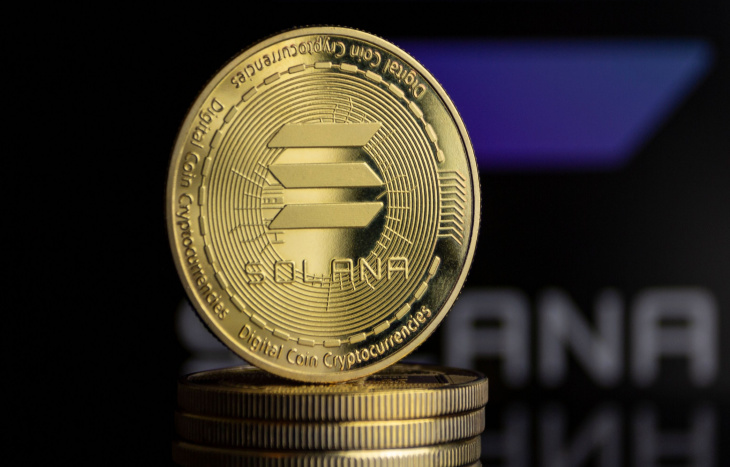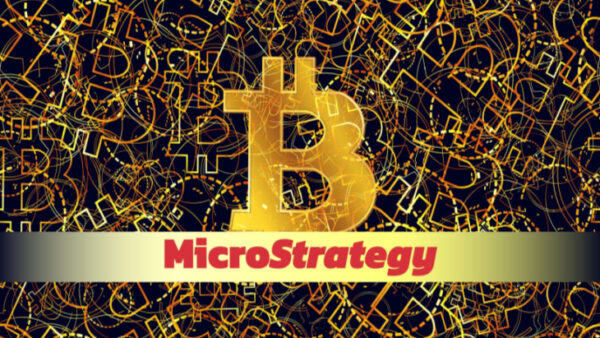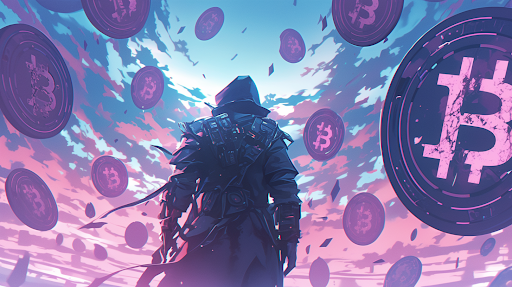What Is SOL Crypto and Is It a Good Investment?
When the Solana blockchain first proposed in 2017 it immediately stood apart from others. At the time, there were two competing models blockchains fell into: proof-of-stake and proof-of-work. But Solana soon introduced to the world the proof-of-history model. It may not sound like a big deal. But it was… and continues to be. This is an important piece of history to consider when wondering “What is SOL crypto?”

Early blockchain models operated without clocks. But introducing a timekeeping technique to synchronize computers would (in theory) speed up networks significantly. This proved to be a noteworthy theory because, well, it worked.
The Bitcoin blockchain is able to process around seven transactions per second (TPS). And the Ethereum blockchain can process 15 TPS. This was (and remains) a major drawback for decentralized finance (DeFi). For instance, Centralized payment systems like Visa (NYSE: V) and Mastercard (NYSE: MA) routinely handle thousands of TPS.
What was holding DeFi back, according to Solana co-founder Anatoly Yakovenko, was that computers that don’t trust each other don’t agree on time. But the proof-of-history model solved that. And the resulting speeds of the Solana blockchain left others in the dust. It’s able to process roughly 10,000 times faster than most others.
Mere months after the release of the whitepaper, it was demonstrated that 10,000 transactions could be verified and processed in just over half a second. Not long later, the throughput was even further improved upon. The team found that by offloading signature verifications to graphics processors took things another step further.
This incredibly scalable network has a maximum throughput of 50,000 TPS. And it does this with an average transaction fee of $0.00025. Conversely, the average Ethereum transaction fee is $1.21 per. For Bitcoin, it’s $1.857. And that leads us to the big question…
What is SOL Crypto?
What the Solana blockchain is able to pull off is impressive. And that’s an important aspect to factor in when answering the question, what is SOL crypto?
After cracking the code on faster throughput, Solana’s native token, SOL was released in April of 2020. And it quickly became one of the more popular tokens out there. Validators on the Solana blockchain are rewarded with SOL. Regular users of the blockchain can be rewarded with SOL as well. And of course, investors can pick some up on any of the major exchanges out there like Coinbase and Binance. And holders of the token are also rewarded with voting rights on future upgrades.
The team behind Solana are on a mission to make it the most desired Web3 project out there. But its explosive growth has drawn the ire of some in the crypto community. We’ll get into some of those reasons in a minute. But fist, a word of warning to investors…
The SOL token has a market cap above $10 billion. That puts it in the top 10 of all cryptos out there. As such, its value tends to ebb and flow with what’s going on in the crypto markets at any given time. And right now, that’s not great.
Just about any way you slice it, we’re in the midst of a crypto winter. Bitcoin has fallen by close to 70% from its 52-week high. Ethereum has fared even worse. It’s down closer to 80%. As for SOL, it’s down nearly 90% since hitting its high in 2021.
What is SOL crypto worth now? At last check, it’s trading for around $30 a token. And honestly, that sounds like a bargain. Network usage is up. So is developer activity. But crypto is anything but a sure thing.
About Those Drawbacks
Like we mentioned above, Solana isn’t without its critics. And some of those critiques aren’t without merit. Many folks out there criticize its actual decentralization.
While the team behind Solana claims it to be “unstoppable” and that transactions will never be stopped, that hasn’t always been the case. It was hindered by a Denial of Service (DoS) attack last year. The attack filled the network with fake traffic. And legitimate traffic was stymied.
Eventually, the validators of the network restarted the network. After that, business resumed as normal. However, the Solana blockchain was down for more than 17 hours. That’s obviously a cause for concern.
Furthermore, the community of validators on the network remains fairly small compared to other blockchains. The problem here is the hardware costs to become a validator remain high. And that calls into question the overall decentralized nature of Solana.
The other thing we’re not crazy about here is token allocation. Almost half of SOL tokens were awarded to those on the Solana team, the company’s foundation and venture capitalists. And only a fraction of what is reserved for the “community reserve fund” has actually been made available for public sale. This is a much small portion than the likes of other major tokens. So it could also be a cause for concern for some folks.
What is SOL crypto: The Bottom Line
Now that you’ve got a better feel for what is SOL crypto and the network it helps power, only you can decide whether it’s worth your investment dollars. We don’t expect to see any major swings in value in the near future. But long-term, we like what we see.
Despite what the critics say, there’s a lot to be bullish about. Not long after that DoS attack, Alexis Ohanian announced a collaborative initiative with Solana Ventures. The goal of this $100 million investment is to create a decentralized Web3 social media platform on the Solana network. And that’s something that Ohanian likely knows a thing or two about. He’s a co-founder of Reddit, one of the biggest social media platforms in the world.
That being said, we’ve heard a lot about the promise of Web3 in recent years. And there remains a lot of uncertainty about its future and what it’ll consist of. Will Solana be a part of it? More than likely in some way. But to what extent is anyone’s guess. If it is able to be a major contributor to how the internet looks in the future though, that’s likely to be a major catalyst for the price of SOL. But that’s most likely years away.
For a long-term play, SOL seems like a decent gamble. It’s not likely to be going anywhere. And there really shouldn’t be any worry about a rug pull. Furthermore, there shouldn’t be much concern that the price will fall off a cliff from a situation that decimated Terra LUNA earlier this year.
We’re not expecting SOL to regain those all-time-highs soon… But as long as Solana’s user base continues to grow, its solvency shouldn’t fall into question. And the price will likely rise again.





